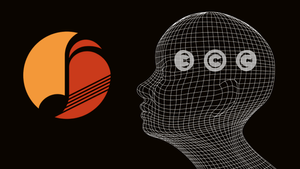The Korean songwriter collecting society KOMCA has issued guidance to its members about logging new works that have been created using AI. Basically, in the short term at least, it will not be possible to register any works in which AI has played any role.
“As clear legal standards and management guidelines for AI-utilising music have not been established”, a notice to members states, KOMCA “is suspending the registration of AI-utilising music”. If AI has been used as part of the songwriting process, members can still “submit a report of the work”, but “registration of the work will be withheld”, meaning it won’t be eligible for royalties.
There has been much debate regarding the copyright status of AI-generated works, which is to say, does and should copyright law protect AI-generated works in the same way it protects human-created works.
In a small number of countries, including the UK, copyright law does arguably provide at least some protection for AI-generated works, but in most countries it is assumed protection is not available. At least for works that are entirely generated by AI.
It is more likely that copyright protection is available for AI-assisted works, so works where a human creator uses AI as part of their creative process. In the US, the Copyright Office, which published a report on this issue earlier this year, has formally stated that AI-assisted works do enjoy copyright protection.
However, there remains a debate as to where to draw the line between AI-assisted and AI-generated. In its report, the US Copyright Office concluded that simply providing prompts to a generative AI model is not sufficient to declare the work AI-assisted. In that scenario the work would be AI-generated and would therefore not enjoy protection under US copyright law.
For now, KOMCA is not getting involved in that debate. It clarified to the Korea Herald that any use of AI would make a work “AI-utilising music”, meaning it could not be registered with the society. Which is to say, AI must have made a “zero percent contribution” for registration to be allowed.
KOMCA members will self-declare that no AI was involved in the creation of their songs and compositions when logging them with the society. Though they will bear “legal responsibility for any civil and criminal disputes” that result from false declarations.
The society also retains the right to request “materials necessary for verification”. And, it warns, “if AI utilisation is confirmed later, measures such as payment suspension and work deletion may be taken according to KOMCA policies”.
It then adds that this policy position will remain while “legal standards for AI music have not been established”, but that the society will continue to develop its policies and approach to AI-utilising music as both the technology and copyright law evolves.

